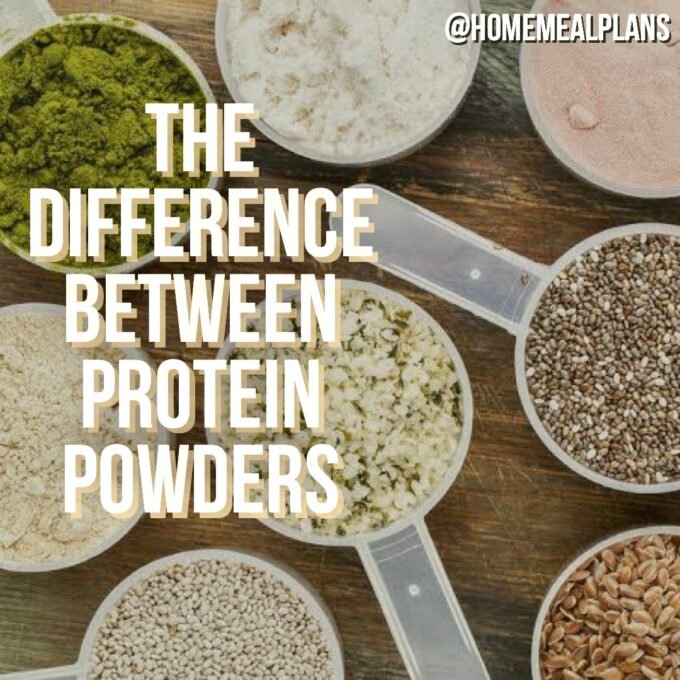
21 Jun The Difference Between Protein Powders
The Difference Between Protein Powders
The selection of protein powder on the market today can be overwhelming. With so many options to choose from it can be hard to decide which type to buy. Knowing the difference between protein powders in terms of cost, efficiency, and the main ingredient will help you make a decision. You will also learn why protein supplementation is necessary in the first place.
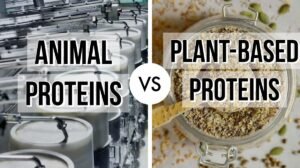
blood on the leaves cover תצפית על מטוסים נתב ג лампа биоптрон цептер felpa fedez bershka amazon حديثى الولادة ملابس مواليد اولاد hp מדפסת פשוטה cizme lungi sclipici sweat nike swoosh solde gris cacciaviti elettricista professionali amazon πλαισιο θεσσαλονικη ακουστικα τιμεσ 3060 ti رسم فنجان قهوة سهل hp מדפסת פשוטה idee cassettiera fai da te vintage ikea mushroom lamp
Animal Proteins
Whey Protein
Casein Protein
Egg Protein
Plant-Based Proteins
Soy Protein
Hemp Protein
Pea Protein
Why Do People Use Protein Supplements?
The answer is that they likely are not getting enough protein in their diet. Why is getting enough protein in your diet important? For starters, protein is one of the three macronutrients your body needs to live and operate effectively.
Getting enough protein in your diet helps you lose body fat faster, gain more lean muscle, burn more calories, and feel more satiated by meals. Having enough protein is especially important if you are engaging in resistance training because this increases your body’s need for protein.

There are studies that show how protein plays a role in preserving lean mass while dieting. If you are increasing muscle mass, you are also enabling your body to be more effective at burning fat. I think we could all agree that anything that enables our bodies to be more effective at burning fat is of value.
Ultimately, you could get all the protein you need from whole food sources alone, but it won’t always be easy. Using a protein supplement can get you enough in your diet each day.
How Much Protein Do You Need Per Day?
Protein needs are based on factors such as weight, age, and activity level. The absolute minimum recommended protein intake in grams is roughly 0.36 grams per pound of body weight per day.

This is simply the smallest amount to prevent deficiency, but it is not nearly as much as you need for optimal health and body composition. Several studies have attempted to figure out the exact amount of protein for muscle gain but they all reach different conclusions.
However, as a good rule of thumb, if you are strength training at the gym or have a physically demanding job you should be consuming between .7 to 1 grams of protein per pound of body weight. For example, if you weigh 160 pounds it would be between 112 grams and 160 grams of protein per day.
If you are a sedentary adult it would be about .5 to .6 grams of protein per pound of body weight. In this example, if you weigh 160 pounds you would consume 80 to 96 grams of protein per day. It should be noted that some people respond better to slightly higher or lower protein intakes.
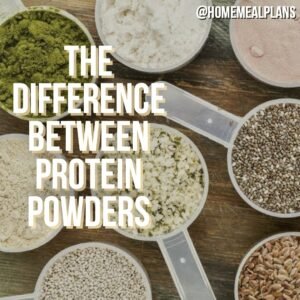
Whey Protein
Whey protein is perhaps the most well known and the most commonly purchased protein supplement. It is cost-effective and provides you with the most protein per dollar. Whey protein is fast-acting in the sense that it is digested quickly, this makes it ideal for post-workout consumption.
Whey protein tends to have the most BCAAs (branched-chain amino acids), which stimulates muscle growth and repair. It is especially high in the amino acid leucine which has been shown to increase protein synthesis.

There are three types of whey protein but I recommend you to only choose between whey isolate and whey concentrate. If you are lactose intolerant, isolate may be what you want. If you want to build muscle and replace meals, concentrate is for you. Whey concentrate is the least processed form of whey of the two recommended options.
Casein Protein
Casein is much slow-acting digestion time than whey and has a gradual release of amino acids into the blood. As a matter of fact, it’s often referred to as “the slow protein.” This simply means it is more beneficial if you consume it before bed.
The reason for this is because most of the muscle repair and regrowth happens when you are asleep. By consuming casein before bed the body gets a slow release of protein throughout the night which contributes to muscle recovery.

For the two types of casein powders, your two choices are either calcium caseinate or micellar casein. Micellar casein is a higher quality form that is more beneficial than the latter when consumed before bed.
Egg Protein
Egg protein is arguably the most overlooked and least mentioned of all the protein supplements. However, in the 80’s that was not the case since it was the most popular protein supplement back then!
Egg protein has a high biological value, this simply means that it’s efficiently absorbed and utilized by your body. It is generally high quality and is good for those who want to stay away from milk proteins and lactose. It has very little fat and carbohydrates as well since the powder is made from egg whites.
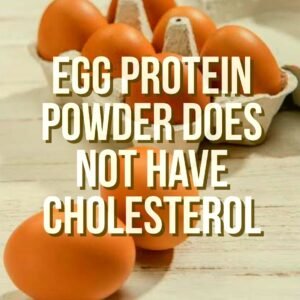
Soy Protein
Now that we have mentioned the animal proteins (whey, casein, and egg) we can move on to plant proteins. If you are on a vegetarian diet you will want to look for plant protein supplements. Adding more plant protein into your diet, has clear cardiovascular benefits, such as lowering blood pressure.
In the first subcategory of plant proteins, we will cover soy protein. What is soy protein? Soybeans are a type of legume. They are naturally high in protein but are simultaneously low in fat.

Soybeans are among the best sources of plant-based protein. It is an easily digested and absorbed form of protein that has been shown to be heart-healthy because of its unique amino acid make-up.
In order to get into a powder form, it is processed into soy protein isolate, which consists of 90 to 95% protein. In men, it should be noted that soy protein contains isoflavones.
Isoflavones have been well-known for their antioxidant, antimicrobial, and anti-inflammatory health benefits. The only possible negative part of isoflavones is that according to some research, they can have a slight impact on hormones that could be considered harmful for testosterone in men.
Hemp Protein
A complete protein, meaning it contains all nine essential amino acids. Hemp seeds have the ideal 3:1 balance of omega fatty acids. This means that hemp protein is good for heart health and for reducing weight.
Hemp is definitely considered to be a high-quality vegan source of complete protein. Hemp protein is a well balanced, “whole” protein, loaded with amino acids, vitamins, minerals, and antioxidants. It contains much more dietary fiber than any of the other vegetable proteins.
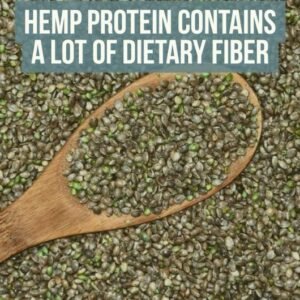
Dietary fiber can improve cholesterol and blood sugar levels. Dietary fiber can assist in preventing some diseases such as diabetes, heart disease, and bowel cancer.
Hemp protein does not have any lactose, soy, or gluten, which makes it a good option if you are sensitive to any of these or have allergies. Hemp protein is generally a bit more costly than the options previously mentioned.
Pea Protein
Pea protein supplements come in a wide array of formulations. Some products contain 100% pea protein, whereas others include pea protein mixed with other protein sources as part of a plant-based protein blend.
Pea protein has all the essential amino acids that make up protein except for one which is methionine. Many people claim that it has a grainy texture and is popular among people who follow a vegan diet.
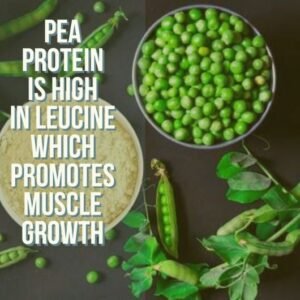
Like egg protein, pea protein also has a high biological value and is high in leucine. Leucine has been shown to be effective in promoting muscular gains. Often times when you find a pea protein it will be mixed with rice protein because they have complementary amino acid profiles.
There are two categories when it comes to pea protein, either concentrate or isolate. Isolate needs to be 90-plus percent protein by weight and concentrate is generally 70-90 percent protein by weight.
The Conclusion On Protein Supplementation
No matter what protein supplement you choose just know that many companies will actually send protein powder samples for you to try if you go to their website!
Nutrition stores often sell sample sizes as well, or in some cases will give them to you for free. When choosing a protein powder, you should consider things such as; nutritional labels, the quality of the brand, customer reviews that include taste and mixability, the most protein for the fewest calories, and a balanced macronutrient profile

– By consuming too much protein powder you can have negative side effects such as nutritional deficiencies or gastrointestinal distress.
– We live in a carb-rich world, where it’s easier and cheaper to get things like cereal, pastas, noodles, crackers, and bread. For most people, it is a bit more difficult to get lean protein into their diet.
– We are all subject to bio-individuality, which means that no one diet works for everyone. Each and every one of us has unique needs – including protein requirements.
– To avoid wasting money, time, and energy, it is best to pick flavors you truly enjoy. Currently, there are several protein powder flavors that taste exceptional.




No Comments